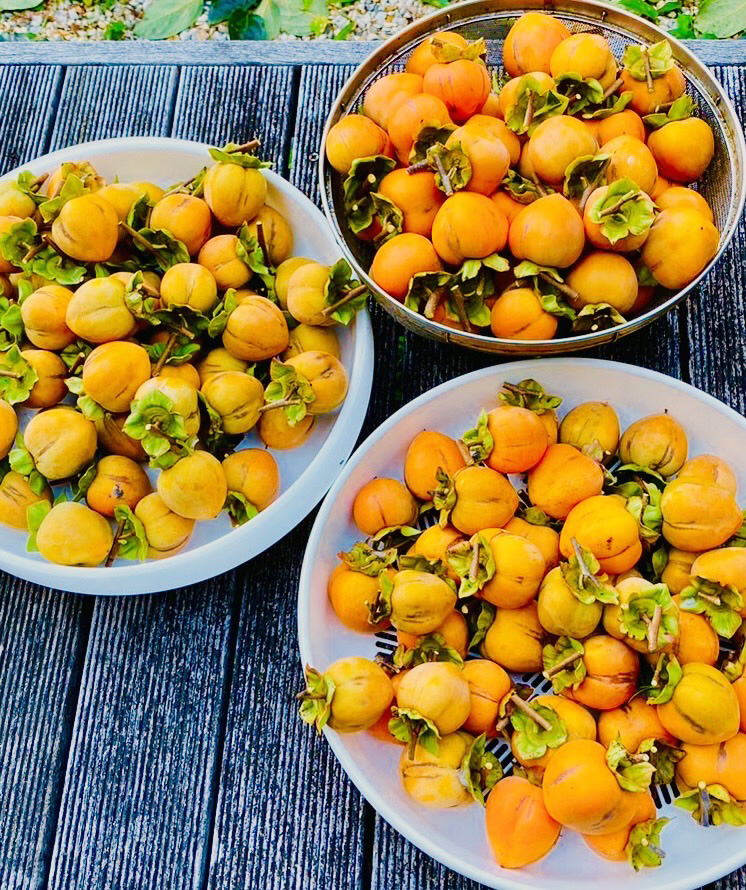
I harvested a lot of astringent persimmons. It’s going to be a lot of work to peel them, string them up, and dry them. But the sweetness when I tried it when the surface of the dried persimmon turns white is exceptional. I’m even moved by the wonder that astringent persimmons can become so sweet. It’s also unrefined to think about tannins and everything in terms of reason. I guess people in the old days knew from experience that astringent persimmons would eventually become sweet if left on the tree. However, if you leave it alone, the birds will eat it sooner or later. So, the idea of skewering astringent persimmons was born. If you dry it in a place where birds don’t come, you can put it under a mirror cake on New Year’s Day and use it as a sword of the three sacred treasures. Around the Edo period, the current method of making dried persimmons became established because it was more efficient to hang astringent persimmons with strings than to skewer them. Since the sweetness of dried persimmons is 1.5 times that of sugar, it is said to be the king of sweetness among fruits.
渋柿をいっぱい収穫しました。これから皮を剥いて、紐に吊るして、大変です。でも、干し柿の表面が白く色づく頃、試しに食べてみたときの甘さは格別です。あの渋柿がこんなに甘くなる不思議さに感動さえ覚えます。タンニンがどうのこうのと何でも理屈を考えるのも野暮と言うもの。昔々の人たちは、渋柿を木なりのまま放っておくとやがて甘くなると言うことを経験的に知ったのでしょう。しかし、放っておいたら、いつの間にか鳥達に食べられてしまう。そこで考え出したのが、渋柿の串刺しです。これを鳥達の来ない所で干せばいい。お正月にはその一本をお鏡餅の下に敷き、三種の神器の剣にも見立てた訳です。江戸時代頃になると、渋柿を串刺しにするよりも紐で括って吊るした方が、数も多く、形も崩れないと言うことで、今の干し柿の作り方が定着する訳です。干し柿の甘さは砂糖の1.5倍と言うことですから、果物の中では甘さの王様といった所です。
